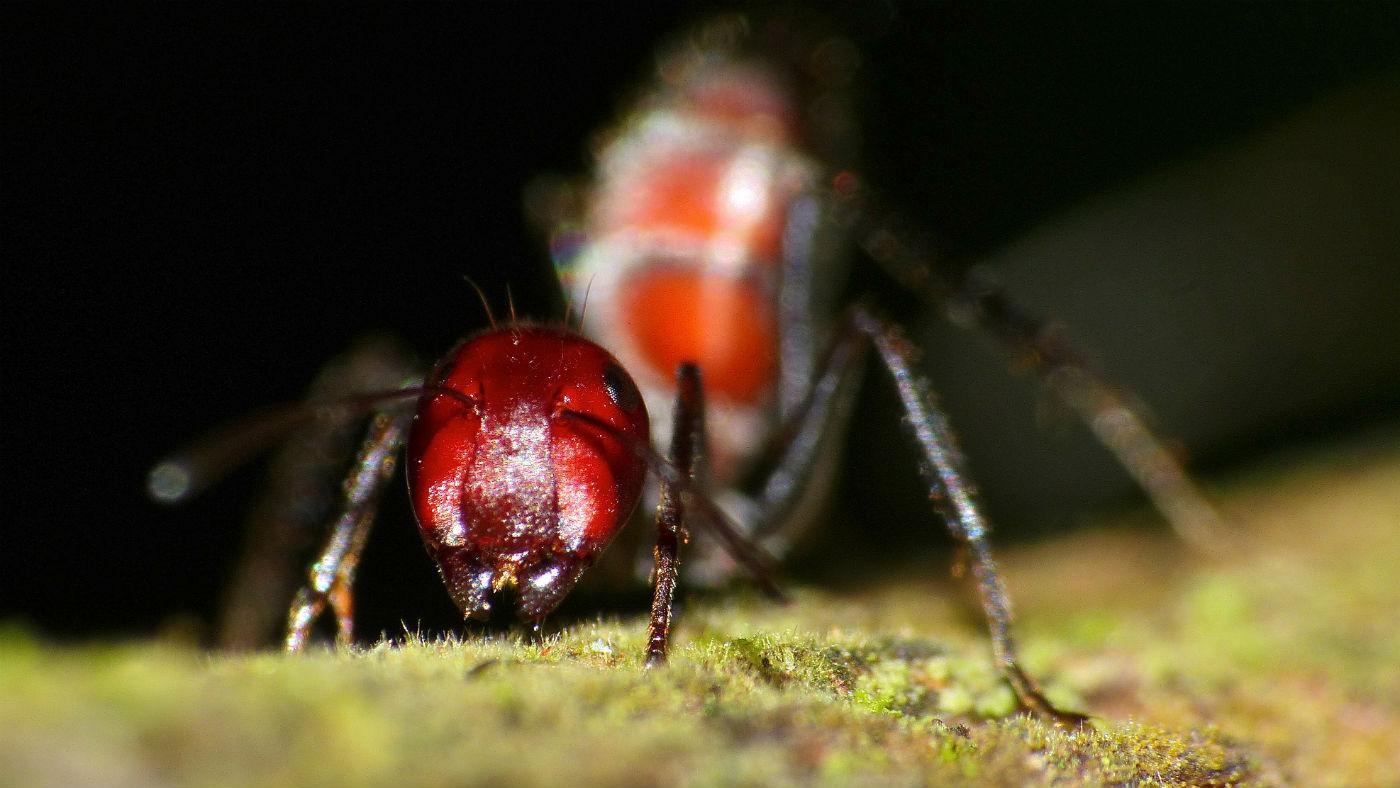‘Exploding ant’ species discovered in Borneo
Insect ‘suicide bomber’ tears itself apart to coat attackers in toxic substance

A free daily email with the biggest news stories of the day – and the best features from TheWeek.com
You are now subscribed
Your newsletter sign-up was successful
Scientists have discovered a new species of “exploding ant” which sacrifices itself when attacked to protect the rest of the colony.
Exploding ants were first observed in 1916, but little is known about the rare insects, says New Atlas, so “a research team made up of entomologists, botanists, microbiologists, and chemists from Austria, Thailand and Borneo ventured into the forests of southeast Asia to find some fresh evidence”.
In the forests of Borneo, they discovered a previously unknown species of exploding ant - the first new variety of the insect recorded since 1935.
The Week
Escape your echo chamber. Get the facts behind the news, plus analysis from multiple perspectives.

Sign up for The Week's Free Newsletters
From our morning news briefing to a weekly Good News Newsletter, get the best of The Week delivered directly to your inbox.
From our morning news briefing to a weekly Good News Newsletter, get the best of The Week delivered directly to your inbox.
When attacked, the tree-dwelling ant - which has been christened ‘Colobopsis explodens’ - latches on to its opponent and then flexes its abdomen so hard that it bursts, spraying the attacker with the toxic yellow liquid stored within its glands.
“Unsurprisingly, this results in immediate death,” says New Atlas. Like bumblebees, who die after using their sting, the ant sacrifices itself for the protection of the colony.
“The ability to blow up is not the species’ only interesting attribute,” says National Geographic.
For instance, the “lethal yellow goo has a distinct and not unpleasant smell that’s strangely reminiscent of curry”.
A free daily email with the biggest news stories of the day – and the best features from TheWeek.com
Not all colobopsis explodens are mere cannon fodder, however. While “minor workers” resort to kamikaze attacks, “major workers (also called ‘doorkeepers’) have big, plug-shaped heads used to physically barricade the nest entrances against intruders”, says Science Daily.
-
 Bondi, Democrats clash over Epstein in hearing
Bondi, Democrats clash over Epstein in hearingSpeed Read Attorney General Pam Bondi ignored survivors of convicted sex offender Jeffrey Epstein and demanded that Democrats apologize to Trump
-
 Are Big Tech firms the new tobacco companies?
Are Big Tech firms the new tobacco companies?Today’s Big Question Trial will determine if Meta, YouTube designed addictive products
-
 El Paso airspace closure tied to FAA-Pentagon standoff
El Paso airspace closure tied to FAA-Pentagon standoffSpeed Read The closure in the Texas border city stemmed from disagreements between the Federal Aviation Administration and Pentagon officials over drone-related tests
-
 Epstein files topple law CEO, roil UK government
Epstein files topple law CEO, roil UK governmentSpeed Read Peter Mandelson, Britain’s former ambassador to the US, is caught up in the scandal
-
 Iran and US prepare to meet after skirmishes
Iran and US prepare to meet after skirmishesSpeed Read The incident comes amid heightened tensions in the Middle East
-
 Israel retrieves final hostage’s body from Gaza
Israel retrieves final hostage’s body from GazaSpeed Read The 24-year-old police officer was killed during the initial Hamas attack
-
 China’s Xi targets top general in growing purge
China’s Xi targets top general in growing purgeSpeed Read Zhang Youxia is being investigated over ‘grave violations’ of the law
-
 Panama and Canada are negotiating over a crucial copper mine
Panama and Canada are negotiating over a crucial copper mineIn the Spotlight Panama is set to make a final decision on the mine this summer
-
 Why Greenland’s natural resources are nearly impossible to mine
Why Greenland’s natural resources are nearly impossible to mineThe Explainer The country’s natural landscape makes the task extremely difficult
-
 Iran cuts internet as protests escalate
Iran cuts internet as protests escalateSpeed Reada Government buildings across the country have been set on fire
-
 US nabs ‘shadow’ tanker claimed by Russia
US nabs ‘shadow’ tanker claimed by RussiaSpeed Read The ship was one of two vessels seized by the US military